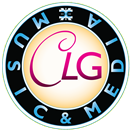While 91% of people check their email every single day, you’re not the only hitting their inbox, and it can be incredibly easy for your message to be lost or condemned amid the digital clutter. Here we look at three key strategies artist must use to ensure that their email marketing is successful.
Guest post by Rachel Grate of Eventbrite
A whopping 91% of people check their email every day, but that doesn’t mean using email to promote your event is a sure thing. Hundreds of messages vie alongside yours for potential attendees’ attention. That means your standard newsletter in a busy inbox may languish unopened — or, worse, be marked as spam.
That’s where sophisticated email marketing strategies come into play. Email marketing technology has more options to personalize your messages than ever before, and event professionals have more opportunity (and more pressure) to use email platforms to their full capacity.
So what will it take to get the open in 2019? Start with these three event email strategies.
Email strategy #1: Personalization and segmentation
86% of consumers today say that personalization plays a role in their purchasing decisions. But that doesn’t mean that you should use “Dear [name]” and call it a day — personalization is about much more than just dropping a first name into the subject line.
That’s because personalization goes hand in hand with segmentation. Next time you try personalization out, start first by dividing your list by specific categories, such as:
-
- Demographics (geographic location, age, income, behavior, etc.)
-
- Past events attended (e.g. someone who has attended your event multiple times before)
-
- Purchase history (e.g. someone who hasn’t attended, but signed up for your newsletter)
As you gather data from your subscribers over time, segment your audience based on what you learn and then use that information to deliver highly relevant content.
Email strategy #2: Automation
You already know you can automatically schedule follow-up emails after an event, but there are more sophisticated uses for automation that go beyond batch emails. Automation is the best way to serve up timely, relevant content at scale, especially to more hyper-segmented lists.
For example, you can segment your audience based on what they click on in a previous email, so you can move them into email journeys that focus on their expressed interest:
- * Start with an email newsletter that has several different topics in it, linked to content
- * Gather data on what each person clicks on, then drop them into different “tracks”
- * Customize each track of multiple emails with content focused on the topic of interest
Using interest-based automation can make your emails more effective without introducing more manual work, helping you nurture potential attendees into ticket buyers.
Email strategy #3: A/B testing
Are your emails performing as well as they could be? The best way to find out is by testing your sends over time. Known as A/B testing, the process is simple: Send two slightly different versions of an email to a divided list. From there, you can determine which tests better.
A/B testing is easy to set up and measure in most email platforms. It’s a best practice among email marketers to test:
-
- Your sending cadences and content (Monday vs. Wednesday sends, morning vs. afternoon)
- Which subject lines and calls to action work best (“Buy Tickets” vs. “Learn More”)
-
- The effects of personalization on open and click-through rates
Only test one variable at a time, so you know exactly what’s making a difference in your open and click-through rates (otherwise, your test will be a wasted effort).
Compare your email performance to industry-specific benchmarks
See how your email opens, click throughs, and unsubscribe rates stack up against hundreds of other event creators across the U.S. in our new report: The Events Industry’s 2019 Email Benchmarking Report.
Rachel Grate is a writer for Eventbrite, where she regularly interviews organizers of the country’s most popular events, from massive music festivals to small food & drink gatherings. She’s a live music lover, a foodie, and a big fan of smiles.
